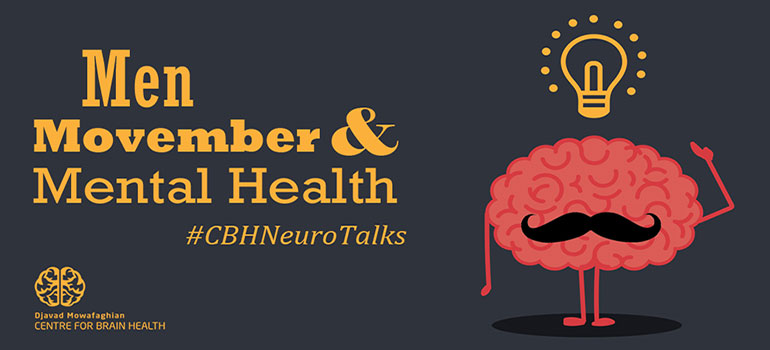
“There’s no health without mental health,” says Raymond Lam, a Professor of Psychiatry in the Faculty of Medicine and the Djavad Mowafaghian Centre for Brain Health.
He is one of the speakers at the “Men, Movember and Mental Health” public talk hosted by the Centre for Brain Health on Wednesday, Nov. 18.
Dr. Lam’s talk will focus on depression among men, and how it impacts their lives in and out of the workplace. It will also highlight a Movember Foundation-funded study called BroMatters (Movember has also funded research at the Men’s Depression and Suicide Network, a UBC-led partnership).

Dr. Raymond Lam
In this Q&A, Dr. Lam discusses some of the key issues involved with men and mental health, and highlights the societal costs of depression.
Are men taking their mental health more seriously these days?
Absolutely – but we have still a ways to go. There’s so much stigma about depression and mental health, but it’s really in the past few years that people have started to talk more about it. This is certainly the case for men.
Many men still have a hard time seeking help. And many don’t recognize depression when it’s happening to them. Stereotypically, men are seen as stoic and not wanting to talk about their feelings. But with every stereotype there are some truths. Depression in men probably looks a bit different than in women. Men are less likely to have feelings of sadness, or to cry. They’re more likely to be irritable, and to experience a loss of interest and enjoyment in things. That makes it difficult to recognize depression. There are also physical symptoms that occur that they may not recognize – problems with insomnia, for example.
The topic of men (particularly middle-aged men) and suicide has been in the headlines a lot lately. What’s the role of mental health in this dynamic?
It’s critical. Suicide’s a huge public health hazard. And men are four times as likely to die by suicide than women. The middle-aged aspect is a relatively new phenomenon. It used to be that the most at-risk demographic was older men struggling with medical issues. But now it seems to be more middle-aged men who are still working, and not necessarily medically ill. Possibly this marks a transition in life, when people are established in their careers, their families are growing up, there’s a shift in terms of their relationship with their significant other. It may be that men in this particular time find it difficult to deal with some of these changes.
Men typically deal with stress and changes in a couple of ways: they try to reconnect with people, which is good, but the other way is to escape, and many men do that via drugs and alcohol – which is a key factor in terms of suicide, because it increases impulsivity.
We know that most people who die by suicide have depression or another mental disorder, and substance abuse complicates that a great deal. These are all factors that we need to look at in terms of trying to help people when they’re struggling, before it gets to the suicide stage.
How do movements such as Movember help address men’s mental health?
Movember is really important in terms of bringing attention to men’s mental health. After all, there’s no health without mental health.
Everyone understands that diseases like cancer cause premature death and years of life lost. But the burden of disease should also include years of life lost because of disability – being unable to work or function normally. People don’t necessarily recognize that depression is the medical condition that leads to the greatest burden in society, even more than cancer, when you count both death and disability years lost.
We really want to get people talking about depression out in the open, in the same way that people now talk about prostate cancer much more freely than they did in the past.